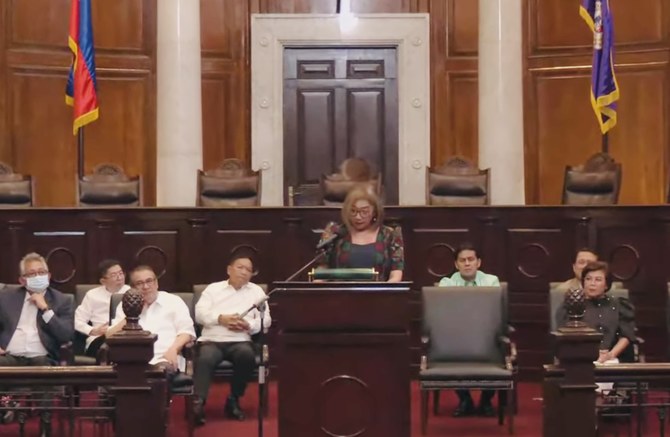MANILA: Women have topped this year’s Shariah Bar examinations in the Philippines, with Supreme Court data showing that female examinees not only obtained the best score but also had the highest passing rate.
Shariah, or Islamic law, is partially implemented in the Philippines, applicable only to the Muslim community — about 10 percent of the 120 million of the country’s predominantly Catholic population.
A total of 853 candidates took part in the Shariah Bar exam in April and May, and 183 passed it. More than half of those who passed the exams were women, nine of whom were among the top 10 scorers.
Supreme Court Associate Justice Maria Filomena Singh announced the results on Tuesday, saying that “62.3 percent of the total passers are female. I’m very happy to announce that.”
This year’s exam also saw the “largest number of Shariah Bar examinees we have had in nearly 40 years,” Singh said.
“This is to strengthen and make the Shariah justice system more accessible by encouraging and giving more opportunities to aspiring Shariah councilors.”
Separate from the regular Bar tests for aspiring lawyers, the Shariah Bar exams are the professional licensure examination covering Islamic law for Shariah court councilor candidates.
Established under the 1977 Code of Muslim Personal Laws, the Islamic law courts are under the administrative supervision of the Supreme Court and have jurisdiction over the Bangsamoro Autonomous Region as well as other parts of the southern Mindanao island, which have significant Muslim populations.
The courts have application over personal status law, including marriage, as well as financial laws and halal certification.
The Supreme Court said last year that in its goal to “strengthen the Shariah justice system” under the Strategic Plan for Judicial Innovations 2022-2027, it was studying the possibility of expanding the mandate of Islamic courts to cover also criminal and commercial cases.





























